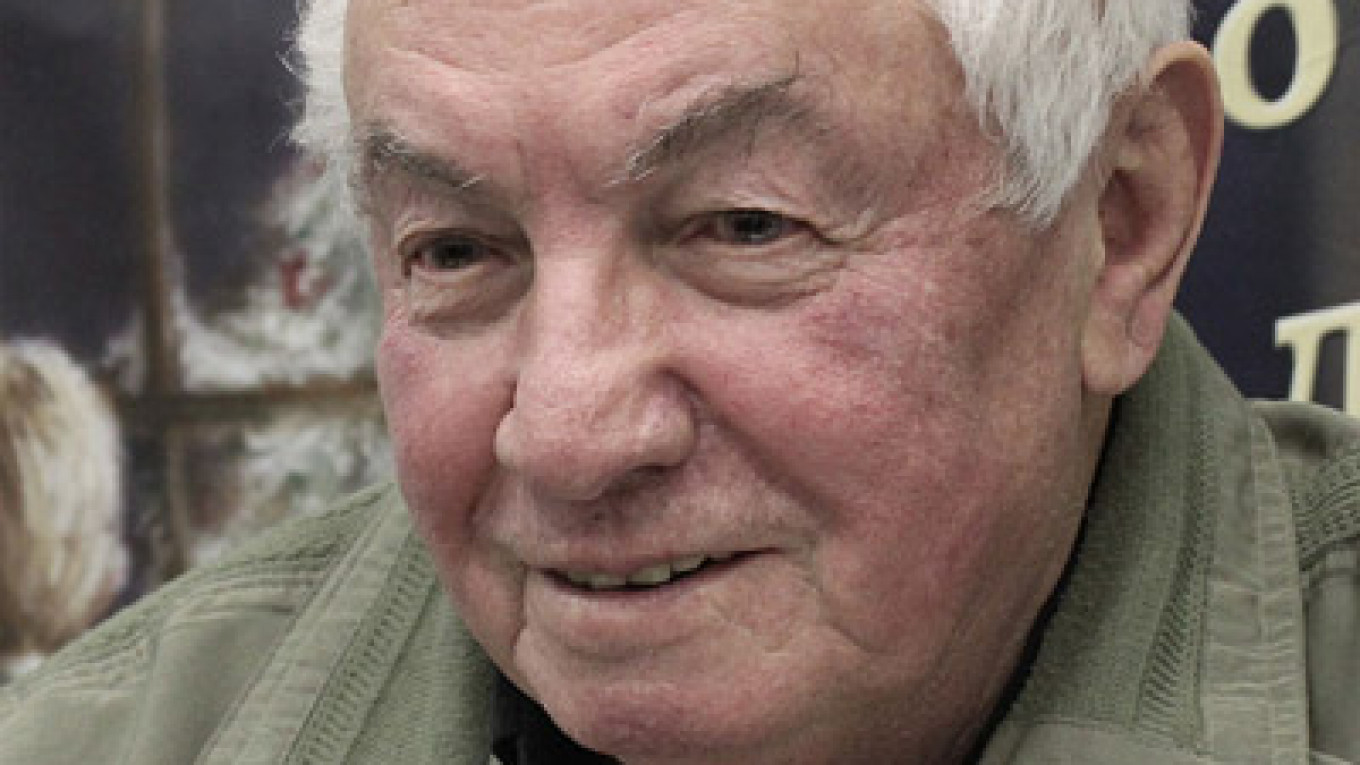Vladimir Voinovich, 82, was recently given the Russian-Italian literary award, the Gorky Prize, for his 1982 novel, "Moscow 2042," an anti-utopian novel that envisages the fate of communism in Russia. The famous satirist talks about that book and more recent developments in Russia.
Q: "Moscow 2042" was written in 1982. How did the idea for it first come about?
A: Originally, I wanted to call the book "Moscow 2032," looking ahead 50 years into the future, but then I thought, 50 years is not enough, so I decided to add on another 10 years.
Q: Do you think that things have changed a lot since you wrote the book?
A: When I left the Soviet Union in December 1980, I said to myself that in five years' time radical changes would occur in the Soviet Union. I argued this repeatedly and would even have bet my life savings on it. It seemed to me that the government's resources were reaching an end; that, in reality, everything was held together only by the fanatical conviction of a large number of people. I witnessed various stages in the development of the Soviet Union: the Stalinist era, followed by the denunciation of the personality cult and the new sense of hope that came with that, and then the Brezhnev years, which, along with those of his successors, were utterly disillusioning.
Q: What elements of "Moscow 2042" are taken from real life?
A: At that time, there were some ludicrous laws implemented. For example, you were not allowed to throw food away and instead had to leave it by the entrance of your building. So many of the episodes described in ''Moscow 2042'' are not far from reality. There is one important idea: According to Genialissimo [the leader of the new Soviet Union in the novel], in order to create a communist society, he needs to build. By the same token, many modern laws evoke a similar feeling — their creators, through their own over-zealousness, do not strengthen government authority, but instead they undermine it.
Q: Do you think that censorship exists even now?
A: I am not often aware of any censorship, but recently I edited a new play called "Tribunal,'' and in the larger theaters they wouldn't run it, evidently due to fear. In the Soviet Union there was Glavlit, an organization formally set up to prevent the disclosure of state secrets, but in actual fact, it interfered with absolutely everything. They would find fault in anything, saying for instance: "Why do you write so sadly?" "Why are there so few communists in your book?" Every official was a censor: Even [Alexander Solzhenitsyn's] "Ivan Denisovich" was only printed after Khrushchev personally gave his permission. Now that is not the case: It is possible to publish virtually any book. Ultimately, writers have to work around their own internal censors to ascertain what is publishable and what isn't.
Q: War and peace are important categories by which to interpret the modern age. Where does the border between them lie today?
A: In the 1990s our country made significant strides toward democracy. Then, an apparent pursuit of Europeanization could be noticed. Now, it is quite the opposite: A movement in the other direction is taking place, accompanied by notions of European decay, a Western crisis, etc. State Duma Deputy Vyacheslav Nikonov said in a recent broadcast: "Let us not forget that Europe is the home of fascism." It seems to me that fascism crossed over into every country.
Q: Do you sense the same collapse of ideas that occurred in the 1960s?
A: I hope that my books will live on when I'm gone. I don't think my generation tolerated defeat; we would not stand for ideas just melting away. Thanks to our efforts, a definite forward progression occurred and even now people are still showing an inner resistance. I think that Russia will inevitably adopt European behavioral norms. For various reasons, not least our constant muscle-flexing, we are dangerously close to starting a large-scale war that would be catastrophic for us. Such conflict is not inevitable, however; time will pass and the pendulum will swing in the other direction.
A Message from The Moscow Times:
Dear readers,
We are facing unprecedented challenges. Russia's Prosecutor General's Office has designated The Moscow Times as an "undesirable" organization, criminalizing our work and putting our staff at risk of prosecution. This follows our earlier unjust labeling as a "foreign agent."
These actions are direct attempts to silence independent journalism in Russia. The authorities claim our work "discredits the decisions of the Russian leadership." We see things differently: we strive to provide accurate, unbiased reporting on Russia.
We, the journalists of The Moscow Times, refuse to be silenced. But to continue our work, we need your help.
Your support, no matter how small, makes a world of difference. If you can, please support us monthly starting from just $2. It's quick to set up, and every contribution makes a significant impact.
By supporting The Moscow Times, you're defending open, independent journalism in the face of repression. Thank you for standing with us.
Remind me later.






